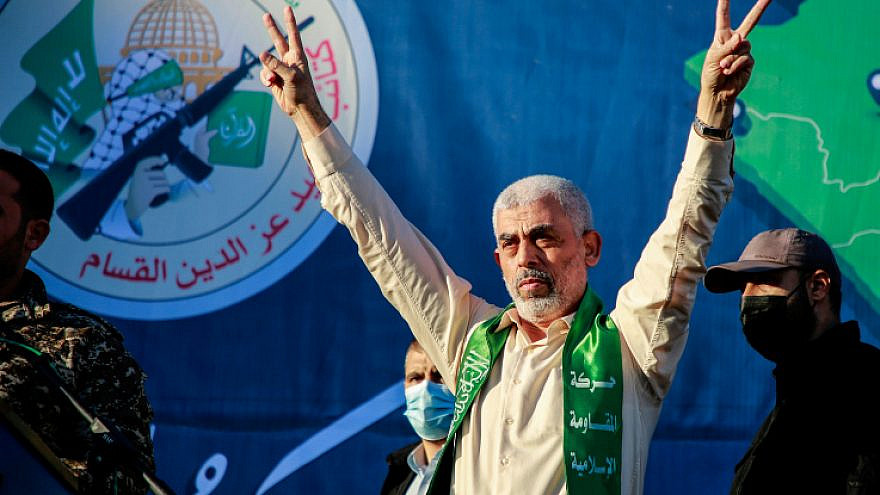Five months after the outbreak of the Gaza war, and even more so as the Muslim holy month of Ramadan approaches, the moment of truth for Israel’s military campaign appears to be rapidly approaching.
U.S. President Joe Biden wants the war to end as soon as possible. On the other hand, our enemies want the festive month, where one should draw closer to Allah, to become a time of Jewish bloodshed. For years, Hamas leader Yahya Sinwar has been using this important period for Muslims as a tool to increase hatred.
This year, according to Israeli sources, he has a special goal: “He wants something to happen during Ramadan that didn’t happen on October 7,” they explain.
In other words, Sinwar is banking on Israeli Arabs, Palestinians of Judea and Samaria, Hezbollah and other regional players to do what they did not do on Oct. 7—actively join the war.
This is the reason, or at least one of the reasons, that he is obstructing the talks on a deal for the release of the captives. After all, a deal would entail a lull that would lower the flames, deprive Hassan Nasrallah, the head of Hezbollah, the Lebanese Shi’ite terror organization, of an excuse to attack Israel, and reduce the fervor and tension across the region. Sinwar is eager to once again ignite fire and brimstone like on Oct. 7 so that the region is set ablaze.
Make clear that Israel is trigger-ready
Although Israel understands that Ramadan is particularly explosive this year, there seems to be a lack of real preparatory steps. In light of the danger of a renewed flare-up, what is required is a reinforcement of military forces, putting reserve forces on heightened alert, increasing military pressure on Hamas, and making it clear to all parties in the region that Israel is trigger-ready and will not hesitate to shoot.
Such actions would not only increase readiness in case the situation escalates but also have a cooling effect on anyone toying with the idea of attacking Israel as Ramadan gets underway next week.
Instead of preparing, Israel seems to be signaling that the war is in its last throes: Reserve forces are being sent home; the operation in Rafah is still a no-go; Nasrallah is getting a pass despite his provocations; Prime Minister Netanyahu is once again dealing with political infighting; and the IDF chief of staff is busy with a round of promotions. Time is playing to the advantage of Hamas, and Israel is shrugging it off as if this bears no significance.
This approach is fundamentally flawed. Finance Minister Bezalel Smotrich rightly assessed this week that “instead of Hamas begging us to take our foot off its neck in exchange for the return of the captives, the feeling is that it has all the time in the world and is setting demands. This is absurd. The situation should be reversed, and our only response should be to return to high-intensity combat. Only steadily increasing pressure on Hamas, specifically during Ramadan, will have it buckle and secure the release of the captives.”
Indeed, we still have months and perhaps years of war ahead of us. We cannot afford to ignore rocket fire or let our guard down because we are exhausted. We have lived with this denial for too many years, and its price has already been seared as the greatest tragedy of the Jewish people since the Holocaust. Therefore, the leadership of the state must assume that another “Al-Aqsa Flood” (the name Hamas gave its Oct. 7 attack) will take place during Ramadan—and take the necessary steps to counter it.


























